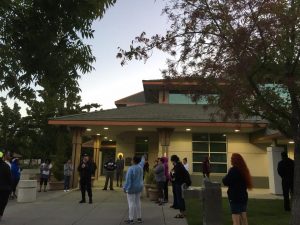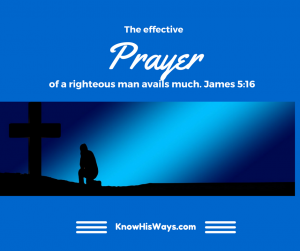Skip to content
Our spiritual journey includes leaving some things behind to reach forward to all that the Lord has for us. Most of us like the new things the Lord wants to do in and through us, but we have a problem letting go of the past. Sometimes a painful past seems preferable to a future promise because it is familiar to us. At other times, we live our lives trying to distance ourselves from the past but not recognizing that we are still bound to the past!

When God led Joshua and the Israelites to cross the Jordan River, they were supposed to move forward and face the giants. While gaining territory on the other side of the Jordan river wasn’t going to be easy, God was about to deliver them from 40 years of wilderness in the desert.
The Israelites had already made some progress by being freed from oppression of Egypt, but God had bigger plans for them. He was training them to be warriors and to take over territories. There was no going back to the old identity. They were only supposed to move forward and live out their new identity as conquerers. The very ones who were homeless for 40 years were about to become land and property owners by taking over territories that God was going to give them. The Israelites needed to move forward as God’s army and depend on His instructions.
So the Lord said to Joshua: “Get up! Why do you lie thus on your face? Israel has sinned, and they have also transgressed My covenant which I commanded them. For they have even taken some of the accursed things, and have both stolen and deceived; and they have also put it among their own stuff. Therefore the children of Israel could not stand before their enemies, but turned their backs before their enemies, because they have become doomed to destruction. Joshua 7:10-12
The Israelites had a mixture of successes and failures because their obedience was shaky. Conquering territories and acquiring wealth had not changed their view of God and of themselves. Crossing the Jordan river did not change their hearts even though the Lord had brought them to a better place. The Lord planned to provide for them abundantly in the new territories. They didn’t have to steal or deceive. The season of poverty and lack was over, but they saw themselves as poor and acted like orphans.
Have you left the past behind by not allowing it to define your present and the future? Do you see your identity in the light of who you are in Jesus? Sometimes in the process of working so hard to distance ourselves from the past, we remain in bondage to it. We try to argue with our past or prove that we are a different person. Instead, we just need to release it in the name of Jesus and make peace with it.
I will continue with this subject and share about the New Testament experience in the Jordan river that allows us to truly leave things behind.
New situations make us very insecure. That’s why it is important to hear the Lord before moving in a certain direction. Joshua was a bold and courageous person. He and Caleb were the only two spies who had the faith to believe they could take over Canaan.
Joshua had an intimate relationship with the Lord, and he before Him in the tabernacle regularly (Exodus 33:11). However, now that Joshua is the leader, things are different. As they were about to cross the Jordan River on their way to Jericho, Joshua needed reassurance.
Have I not commanded you? Be strong and of good courage; do not be afraid, nor be dismayed, for the Lord your God is with you wherever you go.” Joshua 1:9
Joshua was bold and strong , yet, he needed the Lord to remind Him not to be afraid and to be strong and courageous. He was moving into uncharted territories, and it was an insecure place. Joshua’s past successes could not have help him in the new situation. He needed God’s security. He had to rely wholly on the Lord and not allow fear to overtake him. In addition, all the people were looking to his leadership. How could he lead others into the new place if he was afraid and insecure?
Sometimes as leaders we have to walk into unknown places and lead others to where we have never been before. It is so important in those moments to know that we have heard the Lord and that we are being led by Him. Knowing that the Lord is leading us in a certain direction, gives us security in the midst of the unknown.
Our church went through a building crisis a few years ago and there were a number of people who grumbled about the project. Our Pastor continued to say that the Lord had led him in that direction. He felt that we would have to stay put until He comes through for us. While it took a while for the crisis to pass, it did not make our leaders to react or try to save the situation with humanly means. The Lord came through, and we were able to put that situation behind us. Knowing that the Lord had directed us on that path gave Godly security in the midst of much insecurity.
Have you heard the Lord about your situation? As leaders, we need Godly security before we can lead others into a new direction. His leading will give us security in the midst of the journey, and we don’t have to become double-minded or react when things get difficult.
Living in an insecure world compels us to look to the one who is strong, mighty, and unshakable. The Lord desires to establish us in His love and walk with us through the journey of life. We also need God’s security when we step into something new.
When God calls us to something bigger than we had imagined, at first, it sounds very exciting. However, the closer we get to what He has called us to do, we begin to feel more insecure. God’s vision will take us to unknown territories and will challenge our security. We need His security to venture out into the new and the unknown.
But Jesus immediately said to them: “Take courage! It is I. Don’t be afraid.”
“Lord, if it’s you,” Peter replied, “tell me to come to you on the water.”
“Come,” he said. Then Peter got down out of the boat, walked on the water and came toward Jesus. But when he saw the wind, he was afraid and, beginning to sink, cried out, “Lord, save me!”
Immediately Jesus reached out his hand and caught him. “You of little faith,” he said, “why did you doubt?” Matthew 14: 27-31
Jesus’ disciples were secure in staying close to Jesus, but they had their insecure moments when things changed around them. Peter was a brave man. He was even bold enough to jump out of the boat and walk on water when Jesus called him. However, the magnitude of the situation made him realize that what he was doing was not humanly possible! His natural perception made him fearful, and he began to sink.

The Lord may call us to any number of new things such as; a new ministry, a new relationship, a major move, or a new career. God’s vision will require us to stay very close to the Lord. We need to allow Him to hold our hand in the new situations. I love the fact that Jesus didn’t let Peter sink. Jesus expected greater faith in Peter, but Peter’s little faith did not stop Jesus from rescuing Peter. The Lord knows we are frail, and He is loving and compassionate towards us.
We all desire to follow God’s leading, but sometimes the fear of the unknown or the fear of our inadequacy causes us to stop following His direction. While we may feel insecure, God understands. He is pleased that we are following His direction and have a desire to fulfill His vision. Not only He is not looking down on us, but He is also willing to work with us. He wants to help us and comfort us, so we can continue in the direction He has set before us.
Has the Lord called you out of the boat? Are you hesitating to get out of the boat? Or did you step out of the boat and things seem overwhelming to you? You may feel very insecure but look to the Lord right now. Allow Him to stretch your faith and hold your hand as you step into His plan for your life.
Security is the modern buzz word. We hear it in variety of different contexts. Some are trying to help us gain financial security. The politicians advocate for national security. In the age of technology, we are concerned with cyber security and its potential catastrophes.
There is much in our world that causes insecurity. We are encouraged to utilize different methods to increase our level of security. However, if one has all of these securities but does not have Godly security, he/she cannot enjoy all the other earthly securities afforded to them.

so that Christ may dwell in your hearts through your faith. And may you, having been [deeply] rooted and [securely] grounded in love, Ephesians 3:17 (Amplified)
True security comes from being rooted in the love of God. The day we opened our hearts to Jesus, He entered in to take His rightful place in our lives. The seed of faith begins to take root in our hearts, and it establishes us in the love of God. We choose daily to believe God and His love for us, and we ignore the negative self-defeating thoughts and experiences of the past. God’s love is the unshakable security that keeps us grounded.
“But whoever listens to me will dwell safely,
And will be secure, without fear of evil.” Proverbs 1:33
When we stay within the boundaries of God’s word, we remain under His protection.We go where the Lord leads us, and we refrain from anything that is not sanctioned by Him. Having security stems from knowing that the Lord is on our side. It takes away our fears and trepidations. We do no have to be suspicious of others or constantly look behind our backs.
When we are secure, we are confident people. We have the courage and boldness to move forward. Past failures don’t keep us shackled to fear, guilt, or shame. We don’t have to argue to prove our point, and we are not distracted by the voices around us. Our focus is on God’s purpose rather man’s opinion.
What causes insecurity in your life? Are people’s behavior your measure of security? Allow the Lord to expose the root of insecurity. Your healing and restoration does not depend on others’ behavior. He is your creator and savior, and He has the power to make you and keep you secure!
The Lord invites us to trust Him and step into His process. This is a divine partnership. Our free choice gives us the opportunity to choose God and follow His voice in every situation. He will not do our part, and He does not want us to do His part.
Partnering with Lord develops and tests our faith. We cannot claim to have faith but hesitate in partnering with Him. We either trust Him and make the effort to take steps in the direction of His leading, or we will remain fearful and doubtful.
“For the kingdom of heaven is like a man traveling to a far country, who called his own servants and delivered his goods to them. And to one he gave five talents, to another two, and to another one, to each according to his own ability; and immediately he went on a journey. Matthew 25:14-15
The parable of the talents (Matthew 25: 14-28) is a good illustration of partnership with the Lord. Three servants received talents from the Lord. Each person had a choice to use the talents and make them grow or choose not to do anything. They weren’t expected to compare their talents with each other, but they were supposed to use them wisely.
The servants did not pray that God would multiply their talents, but two of them did something about it. They had been given opportunities, and the Lord wasn’t going to make the talents increase without their work. Two of them partnered with God by deciding to put the talents to work, and they were blessed to see their talents double. In addition, the Lord was pleased with their faithfulness and rewarded them for it.
On the other hand, one of them was fearful and doubtful, so he did not partner with Lord and failed to steward the one talent. He just hid the talent, and it did not increase. The opportunities given to the servants were not equal, but they all had the potential to increase. This is an important concept in partnership with the Lord. When we steward the opportunities well, God is pleased, and He even rewards our faithfulness.
Some people feel that life has treated them unfairly. They compare their lives to others and think that others have had more opportunities. This kind of mindset is poisonous and deadly. God did not have sympathy for the servant with one talent because He expected him to use the talent he had. So the Lord took it and gave it to the one with ten talents because he was found faithful in stewarding his talents.
If we don’t steward what God has given us, we fail to partner with Him. Our contentment comes from staying in step with the Lord. When we don’t do our part, we feel ashamed and guilty, which is a playground for the enemy. This leads us to blaming others for our issues.
The Lord does not need our help, but He invites us into a partnership. When we remain faithful to Him, He reveals His promises to us, and we get to know His character at a deeper level!
Moses partnered with the Lord in going to Pharaoh and telling him that God wanted His people out of Egypt. After a series of plagues, the Lord brought the Israelites out of Egypt, and he guided them by cloud durning the day and by fire at night.
And the Lord spoke to Moses, saying, “Send men to spy out the land of Canaan, which I am giving to the children of Israel; from each tribe of their fathers you shall send a man, every one a leader among them.” Numbers 13:1
Now the partnership between the Lord required a greater number of people to believe God and step into faith! Moses sent twelve spies out and only two of them returned with a good report. Because of unbelief, they chose not to cooperate and partner with the Lord, and therefore, they did not enter the land of Canaan for years to come. I wonder if the Lord sent the spies, so they can get excited about the blessings He was about to give them. However, the majority focused on the size of the Canaanites rather than on the power of God to deliver this land into their hands.

Sometimes we choose not to follow God’s plan because it doesn’t make sense or it seems impossible. If we don’t do our part, we will begin to move into grumbling, false worship, and cover up.
Grumbling
When we don’t step into what the Lord has for us, we can grow bitter towards God. We blame Him because He promised us something, but we haven’t seen its fruition in our lives. We begin focusing on God’s part, but we neglect that we haven’t done our part to stay in step with what God required. When the Israelites doubted God’s plan, they ended up staying in the desert. This caused them to grumble and complain and become resentful at God and Moses for bringing them out of Egypt.
False Worship
Some will choose to put their energy and worship into something else. When Moses went up the mountain to talk to the Lord for forty day, the Israelites decided to make a golden calf and began to worship it (See Exodus 22).
Cover Up
We will try to do spiritual things to cover up our disobedience to the Lord. God told Saul to destroy everything after attacking the Amalekites, but Saul chose not to do it. He spared the king and some of the best sheep (See 1Samuel 15). Instead of obeying the Lord, he brought sacrifices to the Lord.
Is there anything the Lord has asked you to do that you have neglected to do your part? The first step is always to repent. Then begin doing your part. He is faithful to do His part, but He waits for us to come along and do our part!
The Lord invites us to divine partnership with Him. He casts the vision and then asks His people to begin walking into it one step at a time. While He is a miracle worker, He gives us the privilege of partnering with Him bring His Kingdom and His will to the earth.
Now therefore, behold, the cry of the children of Israel has come to Me, and I have also seen the oppression with which the Egyptians oppress them. Come now, therefore, and I will send you to Pharaoh that you may bring My people, the children of Israel, out of Egypt.”
But Moses said to God, “Who am I that I should go to Pharaoh, and that I should bring the children of Israel out of Egypt?”
So He said, “I will certainly be with you. And this shall be a sign to you that I have sent you: When you have brought the people out of Egypt, you shall serve God on this mountain.” Exodus 3:9-12
God had a plan to to bring out the children of Israel out of Egypt, but He chose Moses to become part of the solution. He told Moses to go to Pharaoh and bring the children of Israel out of Egypt. Moses did not see himself qualified for the job because he had to deal with a powerful pharaoh who was unwilling to let go of the Israelites.
Moses reluctantly obeyed not knowing what was ahead. He found out that he had learn to rely on the Lord over and over again. The Lord had to send ten plagues before Pharaoh was willing to give them up. At every step of the way, Moses had a choice to either quit or to listen to the next instruction from the Lord.
God chooses to partner with us as well. He is all powerful and is capable of changing a situation immediately. However, it is more important for Him to develop intimacy with His people, so He chooses to work with us through situations.
Most of us desire to know God and understand His purpose for our lives. We have this idea that God will suddenly make everything clear to us. However, God speaks to us, and He waits for us to take a step of faith. For example, if we desire to see our finances restored, then we should begin by giving tithes from the firstfruits of our income. The Lord doesn’t need our tithes, but tithing allows us not to look to money for our security, and it invites the Lord to touch our finances. Then we continue to listen and read His instructions on how to manage our money and be faithful, and over time we will see a harvest of healing in our finances.
The divine partnership is a call of God to restoration, purpose, and healing. We do our part by taking small steps of faith, and God does His part by touching a situation, bringing restoration, and fulfilling His promises to us.
“Watch and pray so that you will not fall into temptation. The spirit is willing, but the flesh is weak.” Matthew 26:41
In the Garden of Gethsemane, Jesus told his disciples to watch and pray. He knew that their season was about to shift. The disciples needed to know the will of the Father in that hour to keep them from falling away. They were about to walk through the most difficult season of their lives, and they needed to be ready through prayer. However, the disciples did not take heed. They fell asleep just as most of us might snooze after a long day and a big meal. They did not recognize that their lives were about to change dramatically, and they needed to get ready for a tough season.
Some of you are experiencing the winds of change personally. Some families and churches may be going through a change of season. Our nation is experiencing rapid change currently. This is the time that the people of God must rise up and take their place. The consequence of the current developments can be much greater than just an election or a Supreme court decision. We are called to be watchmen and intercede on behalf of our nation.
Peter was tempted and denied Jesus because he was taken by surprise by the arrest of Jesus. He had relied on himself more than relying on the Lord up to this point. When things go as planned, it is easy to rely on ourselves and think that we are still surrendered to God’s will. However, the times of uncertainty can challenge us to find a way out! What Jesus told His disciples holds true for us as well. We need to watch and pray!
Jesus called the church to be the light and salt of the world. The only way we can maintain our potency is by remaining in intimate relationship with the Lord and having an ear to hear His instructions. We are called to be watchmen, so when the enemy is approaching, we can sound the trumpet and alarm the people of God of the impending danger. Let’s be ready for God’s work in our land.
A prayer movement is happening this weekend in Washington DC (Oct 6-9) called Awaken the Dawn people from all 50 states will be represented and will pray for our nation. You can join in by spending some time in prayer and fasting during those three days. The following is the link to the event: http://www.thecall.com/riseup/.
Now in the morning, having risen a long while before daylight, He went out and departed to a solitary place; and there He prayed. Mark 1:35
Prayer was a priority for Jesus. He took time away from the crowd and the disciples to pray to the Father in the early hours of the day. Jesus had a lifestyle of prayer.
We are called to make prayer a priority and to intercede on behalf of others. Prayer is our communication with the Lord. He desires to hear our hearts. If Jesus was continually in prayer before the Father, how much more do we need to be prayer regularly!?
If My people who are called by My name will humble themselves, and pray and seek My face, and turn from their wicked ways, then I will hear from heaven, and will forgive their sin and heal their land. 2Chronicles 7:14
When we pray, God begins to change our hearts about people and situations. As watchmen, God aligns our hearts to His heart. He also reveals things that can help in providing insight for those who are in the midst of an issue.
As we look at the landscape of our country, the body of Christ as a whole has lost its value for intercession. We have replaced praying with complaining. Humility has given way to pride. God’s ways have been replaced with people’s preferences and opinions. Biblical righteousness has given way to self-righteousness. That’s a recipe for chaos and division.

This past Saturday, the intercessors from my church gathered at the Livermore City Hall at 6:30 am to pray for the city officials, police, schools, churches, businesses, families, and the homeless. In this hour, every church should be involved in praying for its community.
We need to invite the peace of God in our communities. We ask Him to heal our land, and we make ourselves available to be part of the answer. We ask, seek, and knock until His Kingdom comes and His will is done on earth as it is in heaven.
In Biblical times, watchmen were supposed to protect the city walls from the invasion of the enemy. That meant that they had to remain alert during the time they were in their post, discern foes from friends, and sound the alarm when necessary.
Son of man, I have made you a watchman for the house of Israel; therefore hear a word from My mouth, and give them warning from Me: Ezekiel 3:17
God told Ezekiel that he had set him as a watchman over the house of Israel. He was supposed to listen to the words of the Lord and warn the Israelites when God instructed him. Ezekiel was the prophet of God and was appointed by God for this task. In this case, he was a spiritual watchman for the house of Israel.

I have set watchmen on your walls, O Jerusalem;They shall never hold their peace day or night. You who make mention of the Lord, do not keep silent, And give Him no rest till He establishes And till He makes Jerusalem a praise in the earth. Isaiah 62: 6-7
The Lord sets watchmen over His people to intercede on their behalf and be attentive to His voice. The watchmen are intercessors. These are individuals who have a burden to pray for people, churches, communities, and nations, and they listen to hear God on behalf of them.
Has the Lord called you to be an intercessor? If you have a tendency to worry about people’s lives, your church, or your country, you may have a burden to pray by warring in the spirit on behalf of God’s people. You are called to release your worry and become a warrior for God!
Our nation and our communities need our prayers. Many people are quick to share their opinions about anything and everything that is going on in the culture, but it is more powerful when people of God look to the Lord and intercede on behalf of the people. We need the Lord to intervene in the affairs of man and for Him to give us wisdom on how to handle various situations.
Do you have a burden to pray for regularly? Does God share words of encouragement to share with those you pray for? Does your church hold prayer meetings that you can pray with other intercessors corporately? If you don’t have regular prayer meetings, who is interceding for your church and your community?






